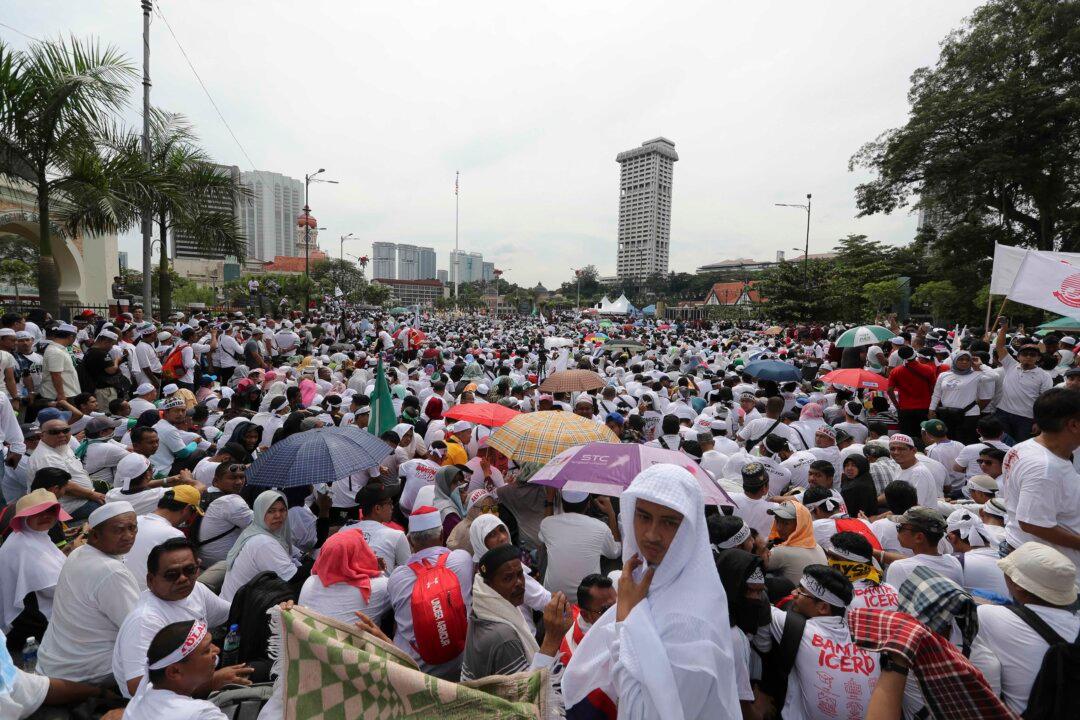Tens of thousands took to the streets of Kuala Lumpur on Dec. 8 to celebrate that Malaysia had not ratified a U.N. convention aimed at eliminating racial discrimination.
The protest-turned-thanksgiving rally was given the green light to go ahead by the Kuala Lumpur City Hall last week after the Pakatan Harapan (PH) government decided not to sign the U.N. International Convention on the Elimination of All Forms of Racial Discrimination (ICERD) last month.





